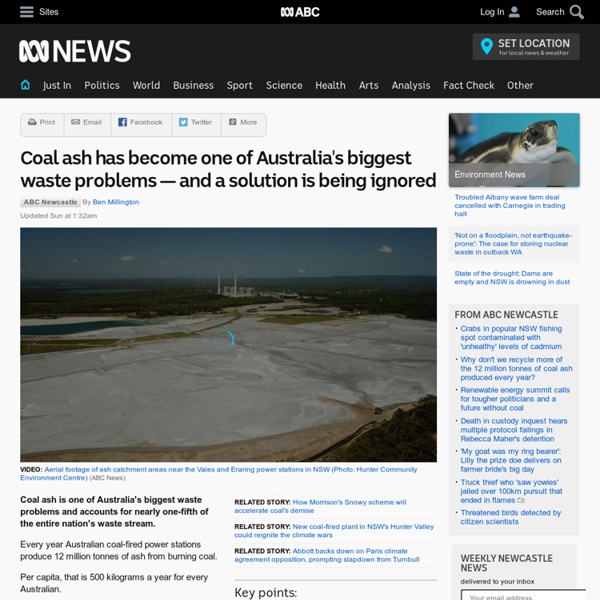Contractors refusing to sign up for TasWater projects, citing contract risk concerns
TasWater is set to change how it manages its small dam, sewer and pipeline projects, after local contractors raised concerns about "unethical" contracts exposing them to unreasonable risk, and projects "burdened by bureaucracy". Key points: TasWater set up a Capital Delivery Office (CDO) with large companies to manage its dam, sewer and pipeline worksTasmanian contractors are worried the CDO's new contracts expose them to serious riskTasWater will now move some low-risk projects away from the CDO Some Tasmanian civil contractors have been refusing to tender for some projects with TasWater, after the water utility set up a joint venture with large national companies.
SA Government approves drilling on sacred Lake Torrens, despite opposition from Aboriginal groups
The South Australian Government has granted a minerals exploration company permission to "damage, disturb or interfere" with a sacred Aboriginal site in the state's outback. Key points: Lake Torrens is a sacred site to the Kokatha, Barngarla, Adnyamathanha and Kuyani peopleThe South Australian Government has approved mineral exploration on the lake, with environmental guidelinesThe exploration proponent plans to use "mats" to protect the lake's surface during the operations Lake Torrens does not have any native title protections but it is an important site to several Aboriginal nations.
Gundjeihmi and ERA enter negotiations to extend Ranger Uranium Mine rehabilitation
An Aboriginal group in Kakadu National Park says the rehabilitation plan for a decommissioned uranium mine is "woefully inadequate", calling for a 26-year extension to the process. Mining at the Ranger Uranium Mine wound up yesterday after more than 40 yearsTraditional owners in Kakadu are now calling for an extension of the project's rehabilitation phaseThe company that runs the mine has signalled its support for the move Production at the Ranger Uranium Mine, on the outskirts of the national park, drew to a close yesterday after more than 40 years of operation.
White spot virus killing wild Australian prawns and crabs, with some experts saying 'it is here to stay'
The exotic white spot virus that devastated South-East Queensland prawn farms is now killing wild prawns and small crabs in the Logan river and has become widespread in Moreton Bay. Key points: Surveys confirm white spot virus is killing wild prawns and small crabsWhite spot disease does not harm humansThe disease has spread since an initial outbreak on Logan prawn farms in 2016
Your superannuation is about to increase, but here's the catch
There's something odd about those television and internet advertisements telling us we are getting more super. The money seems to come from nowhere. "Pretty soon," explains the woman getting onto an escalator, "the amount of super paid on top of our wages will go up".
Economics professor Ross Garnaut says Australia voluntarily keeps hundreds of thousands unemployed
This could take a while to sink in. With weeks to go before the JobSeeker rate is cut, one of Australia's most respected economists has suggested there are potentially hundreds of thousands of Australians on unemployment benefits who shouldn't be there. Professor Ross Garnaut, a Professorial Research Fellow in Economics at the University of Melbourne, has condemned Australia's economic policymakers for the situation.
Were JobKeeper payments supposed to flow to shareholders?
It can be hard following a news story. If a story unfolds slowly over months, in increments, it's like watching a sand dune shifting around. But when a big development happens, it can remind everyone where a story's up to. Take JobKeeper. Specifically, how executive bonuses, corporate profits and dividends have been faring under the JobKeeper scheme.
If you've been feeling poorer over the last decade, this graph explains why
Have a look at the graph below. It shows what happened to real household disposable income in Australia between 1992 and 2020. You'll see three distinct periods.



